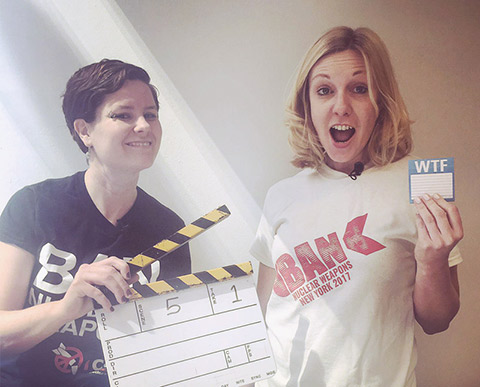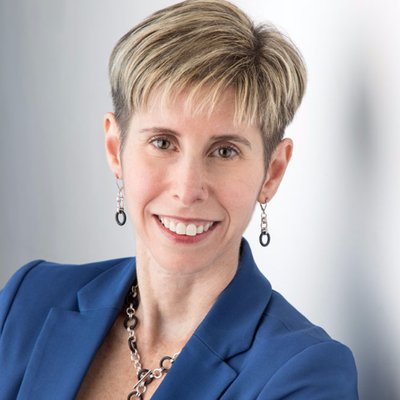In the 1980s, hundreds of thousands of people around the world took to the streets to protest nuclear weapons. The issue faded from public view as the superpowers reduced their arsenals, but the threat never went away – and people’s awareness is now growing again, says Ray Acheson (BA 2005 UC), who leads the disarmament program of the Women’s International League for Peace and Freedom. “Right now, we are facing a new arms race. Every country armed with nuclear weapons is either expanding or upgrading their arsenal.”
This year, Acheson and her colleague Allison Pytlak (BA 2004 VIC) have been taking part in United Nations treaty talks to ban nuclear weapons. Unlike previous UN treaties that have sought to limit the proliferation and testing of nuclear weapons, this effort seeks to outlaw them. The negotiations involved at least 113 countries and many civil society groups, though no nuclear-armed nations took part. Acheson and Pytlak made recommendations outlining what a strong treaty should include. They also helped organize a women’s march in New York in June to support the prohibition. Their goal: to make nuclear arsenals politically untenable. “Banning nuclear weapons in international law puts them in the same category as chemical and biological weapons,” Acheson explains.
As part of their work for the league, Acheson and Pytlak investigate and criticize excessive military spending, war profiteering and destructive technologies such as weaponized drones and autonomous weapons.
While the U of T grads didn’t meet until 2008 when they were both working in New York, they’ve become a true dynamic duo. As the disarmament program’s only two staff members, they share the workload for most projects. U.S. president Donald Trump’s call for American nuclear supremacy while North Korea tests long-range missiles has prompted more public interest in their work. “For the first time, non-nuclear-armed states and civil society are coming together to do something, even though the nuclear-armed states oppose it,” Acheson says. “The stakes are too high to do nothing.”
Recent Posts
U of T’s 197th Birthday Quiz
Test your knowledge of all things U of T in honour of the university’s 197th anniversary on March 15!
Are Cold Plunges Good for You?
Research suggests they are, in three ways
Work Has Changed. So Have the Qualities of Good Leadership
Rapid shifts in everything from technology to employee expectations are pressuring leaders to constantly adapt






